| If you can't view the email, please click here. |
|
|
|
From the Desk of the Editor
Süreya Martha Köprülü
“We are proud to present our readers with this special issue of TPQ, published in collaboration with Atlantic Council IN TURKEY, which revolves around energy dynamics in Turkey and its neighborhood, in the context of a shifting geopolitical landscape.”
“This issue’s authors evaluate key trends and drivers that are shaping the regional energy landscape—from the Caspian to the Mediterranean—and their wider implications for stability and prosperity. Our authors also share their insights on the choices ahead for Ankara’s policymakers as Turkey continues to advance a sustainable energy transition and attempts to reach its energy and climate targets.”
“We would like to extend a special thanks to Atlantic Council IN TURKEY, the team in Istanbul, and the fellows who contributed to this issue from the Atlantic Council’s Global Energy Center in Washington D.C.”
|
|
|
Foreword by Atlantic Council
Defne Arslan
“Straddling the continents of Europe and Asia, Turkey’s strategic location between energy producing countries in the Middle East and Caspian regions and major consumers in Europe, offers it the potential to act as a bridge and contribute to European energy security. The first stage towards harnessing this potential was completed in June 2018 with the inauguration of the monumental Trans-Anatolian Pipeline (TANAP) which is expected to soon connect with Europe.”
”In 2018, the Atlantic Council launched the Atlantic Council IN TURKEY Program to increase our engagement with Turkey through our programming work and publications on a range of topics from energy to economics & business and security with a focus on issues of mutual interest and importance to the United States and Turkey. I am very proud to be including articles from both the Turkish Ministry of Energy and Natural Resources and the United States Department of State in this special issue.”
|
|
|
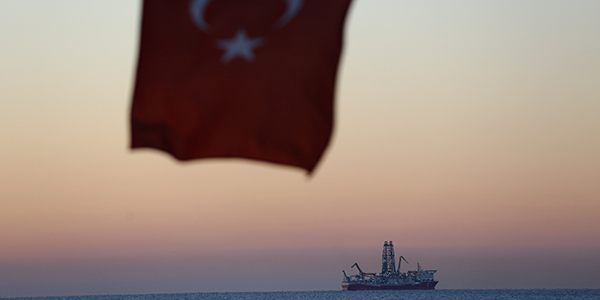 |
Energy Transition in Turkey
Alparslan Bayraktar
“Turkey has also gone through a major transition since 2002, which I refer to as Transition 1.0. Opening the market to competition while meeting the increasing demand was not an easy process, but I believe that strong political commitment, vision, and stability made it possible. During this transformation, the government’s role has shifted more towards regulation and policy-making. In 2017, 16 years following the first transition period, the Ministry of Energy and Natural Resources announced its National Energy and Mining Policy. I call this policy Transition 2.0 due to its comprehensive approach ranging from energy to industry to employment.”
“Energy saving and energy efficiency can be considered as alternative energy sources which are crucial elements of national strategies and energy policies of 2023. Turkey announced the National Energy Efficiency Action Plan in early 2018 which sets out actions to implement a reduction of 14 percent of primary energy consumption by 2023, via a strategy which includes 10.9 billion dollars of planned investment.”
“The Turkish energy market has gained a lot of maturity in terms of competitiveness primarily due to successful market reforms carried out during transition periods. Therefore, any new player planning to enter the market, whether through an LNG, nuclear, natural gas or renewables project should be competitive. Additionally, some of our gas supply contracts are expiring in 2020. Thus, we are at a very important stage to renegotiate or make new contracts on competitive terms.”
|
|
|
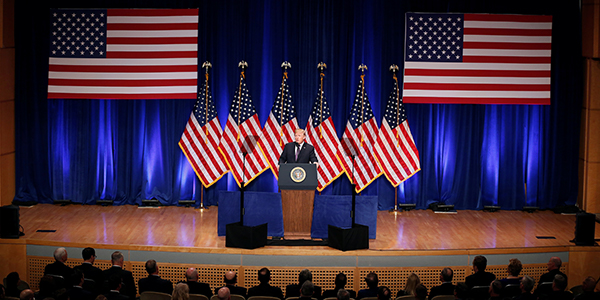 |
Energy Abundance, Security & Diplomacy: The US Approach
Sandra Oudkirk
“US energy exports strengthen the energy security of our allies and partners and promote environmentally and financially sustainable growth. The United States will continue to be a reliable producer, supplier, and partner. We will not ‘shut off the gas’ when others need it the most. Our goal is to keep markets open, transparent, and free of manipulation and political coercion.”
“Given Russia’s track record of using energy as a political weapon, we believe Europe should and must diversify its energy supplies so that it can effectively respond to a possible disruption in gas deliveries from Russia. Doing so would mean that Europe could continue to import gas from Russia without running into the same grave political risks that it does today.”
“Natural gas has the potential to transform both developed and developing economies worldwide. Energy, and in particular recent discoveries of natural gas, can catalyze collaboration in otherwise challenging environments. For example, in the Eastern Mediterranean, offshore discoveries in Egypt and Israel have redefined regional relationships as governments seek to work together. We hope that recent discoveries off Cyprus can be equally transformative.”
|
|
|
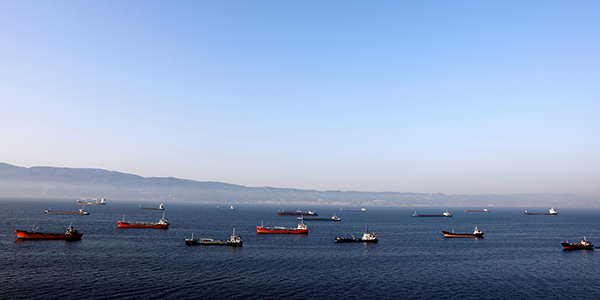 |
The Legacy of the Southern Gas Corridor
Interview with Richard Morningstar
“My involvement [in the Southern Corridor] goes back to the 1990s—an interesting time in the broader conversation about oil security and pipelines in the region. At the time, the focus on the Southern Corridor and energy transit routes really took center as then-Azeri President Heydar Aliyev signed the ‘contract of the century’ with international oil companies to develop resources in the Caspian. Since that time, supporting the development of Caspian resources and the furthering of the Southern Corridor has been a bedrock of bipartisan policy through successive US presidential administrations of both parties.”
“The Southern Gas Corridor is critical to European energy security, as the project contributes to the availability of a diverse source of gas supply and transit routes to Europe. Azeri gas produced at Shah Deniz provides an additional source of supply, while TANAP provides an additional route through Turkey, and TAP brings the gas to Greece, Italy, Albania and possibly other states. This project, an incredibly complex undertaking, contributes to a more competitive market in Europe and alleviates and mitigates reliance on a single supplier.”
”Turkey has been hugely supportive of the TANAP pipeline and was able to successfully negotiate with all the parties on transit fees. These relationships are very important and have proved durable and lasting. No matter the ups and down in the US-Turkey relationship, energy has and continues to be a key area of cooperation and shared interest.”
|
|
|
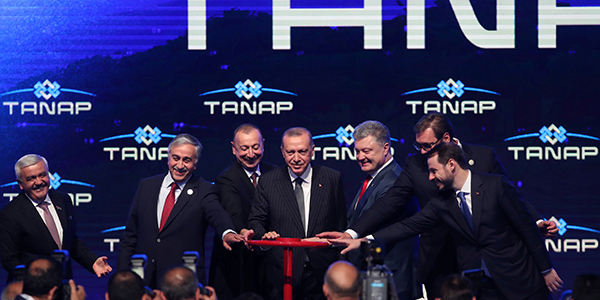 |
Tanap: An Influencer Well Beyond Energy
Khazar Ibrahim
“Some 10 years ago, when I wrote for TPQ on the energy security of Europe, the salient argument at the time was that the rapidly growing European market was in serious need of Caspian energy resources. Today, this claim still rings true, but there is a lot of add-ons beyond energy. Europe’s energy demands are high, but so are its needs to deal with the migration crisis and navigate the uncharted waters of emerging, multipolar, global economic, financial, and security systems.”
“Not only will TANAP make Turkey an energy hub, but it will also seriously contribute to the country’s general development. A more prosperous Turkey also means a better life for the roughly three million Syrian refugees in Turkey. It will definitely influence the life in neighboring Syrian provinces; thus, contributing to a more stable future of the region.”
“Regionally, Turkey and Azerbaijan are at the core of most multilateral formats: Georgia, Iran, Pakistan, Ukraine, etc. Furthermore, the Azerbaijan-Turkey coalition facilitates infrastructure, energy, and political projects that are paving the way for a more stable and prosperous region, hence, a better and more predictable world. Much will depend on how much this historic momentum of positivity is harnessed by the international community for its own gains.”
|
|
|
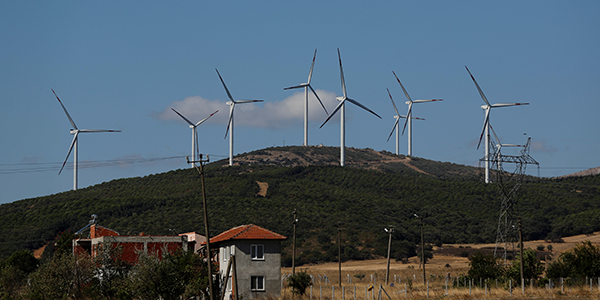 |
Renewable Energy Investment in Turkey: Between Aspiration and Endurance
David Livingston
“Turkish policymakers are pursuing a variety of strategies to meet rising demand, reduce import dependence, and bolster the country’s energy security. Alongside coal, natural gas, and some nuclear investment, renewables are playing a large role in this strategy. The country is blessed with an abundant renewable energy resource base, one that is broad and diversified across solar, wind, geothermal, and hydro resources in a way that few other countries enjoy.”
“Can Turkey’s geothermal sector continue its rapid expansion? Policymakers certainly hope so. The former General Manager of the General Directorate of Renewable Energy announced at a conference in April 2018 that the government would set a new 2030 geothermal target of 4 GW, and would also take additional steps to promote further development of geothermal direct thermal applications, as well as diversification of geothermal electricity production beyond Western Anatolia.”
|
|
|
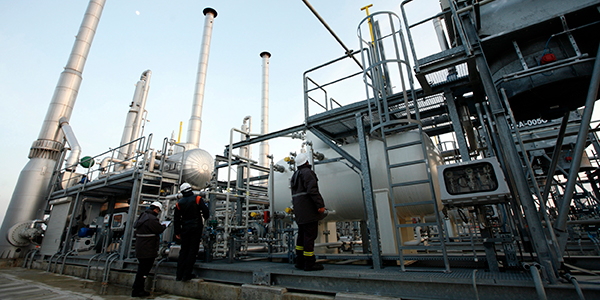 |
The Importance of Natural Gas to Turkey’s Energy and Economic Future
Melanie Kenderdine
“Diversification of sources of gas supply has been a key feature of Turkey’s energy policy. For instance, TANAP now provides access to the Azerbaijan Shah Deniz field. Due to the field’s scalable features and the potential for additional production in shipping volumes from Shah Deniz that could be doubled with a modest investment, this would increase the share of imported Caspian gas relative to Russian and Iranian gas. This would likely create opportunities for additional contract/price flexibility.”
“Establishing a robust Turkish natural gas hub would require significant infrastructure investments such as changes to the current Turkish natural gas market; support for additional production from different sources in the region to add volume and liquidity; resolution of underlying geopolitical tensions that discourage investors; development of additional sources of supply; and potential customers and suppliers. In addition to cost-reflective pricing and supply diversity noted above, there would have to be gas-on-gas competition and new transparent market mechanisms.”
|
|
|
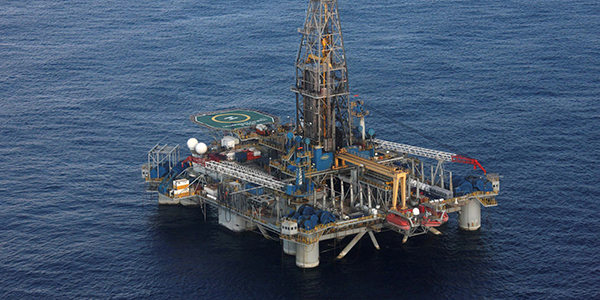 |
East Med Energy: Restoring Squandered Opportunities
Matthew J. Bryza
“Given the sharp tensions in Ankara’s relations with both Jerusalem and Nicosia, an Israel-Cyprus-Turkey gas pipeline from a political perspective is inconceivable today. While Turkey and Israel could overcome their current diplomatic differences with minor difficulty, the political misalignment between Turkey and Cyprus is considerably more challenging.”
“A strategic triangle among Greece, Cyprus, and Israel, seems to be gaining strength as it pursues a highly ambitious pipeline project seemingly aimed at isolating Turkey. The EastMed Pipeline would link gas fields south of Cyprus to Crete and then mainland Greece. Despite serious questions about the project’s commercial and financial viability, the European Commission supports the EastMed Pipeline as a Project of Common Interest.”
|
|
|
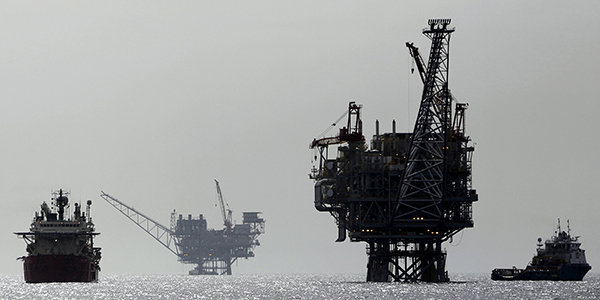 |
Eastern Mediterranean Energy: A Decade after the Major Discoveries
Brenda Shaffer
“The natural gas discoveries in the Eastern Mediterranean are not likely to advance peace among actors in the region. However, gas trade in the region between states that are at peace with each other can contribute to domestic prosperity and thus, stability and thus, also strengthen existing peaceful relations.”
“Among the Eastern Mediterranean states, Egypt has had the most significant progress in developing its new gas resources. In the latter part of the previous decade, Egypt went from a gas-exporting country to one with frequent domestic gas shortages and electricity supply disruptions. After President Abdel-Fattah el-Sisi’s rise to power in 2012, improved energy and economic policies in Egypt encouraged the return of foreign energy companies for exploration.”
|
|
|
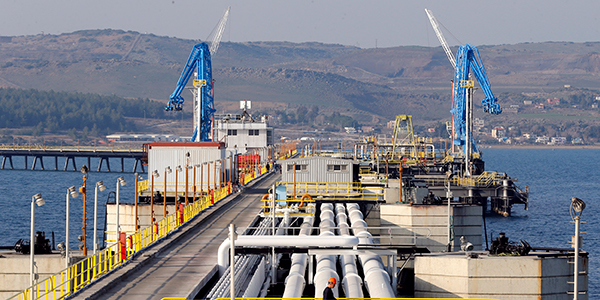 |
Turkey and the Kurdistan Region of Iraq: Strained Energy Relations
John M. Roberts
“The importance of the energy relationship between Turkey and the KRI cannot be underestimated, but neither can the political complexities of triangular relations between Ankara and the KRI authorities in Erbil and the federal Iraqi government in Baghdad. And all this has to be set against the background of fierce regional conflicts and tension.”
“As politicians and businessmen come to terms with the post-referendum reality of reduced revenues for the KRI, and as the KRG confronts the chilly post-referendum winds blowing from Ankara, the KRI’s leaders are compelled to rely on a combination of old and new forms of energy diplomacy. The old essentially consists of what is left of the personal rapport between KRG President Barzani and the cross-border commercial interests of prominent Turkish and Iraqi Kurdish businessmen and politicians. The new essentially consists of reliance on fresh intermediaries, most notably Rosneft.”
|
|
|
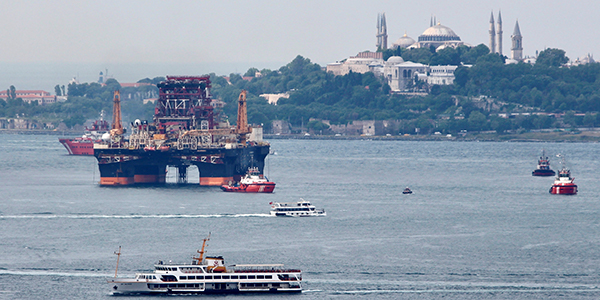 |
A New Strategy for EU-Turkey Energy Cooperation
Simone Tagliapietra
“As a result of the TANAP-TAP and TurkStream developments, the volume of gas supplied to the EU via Turkey will diminish overall by 2020, because Turkey will no longer import Russian gas via EU countries and because the EU will only scale-up its imports via Turkey to 2.5 percent of its consumption. Thus, in the short-term, too much importance is attached to the strategic relevance of gas in the EU-Turkey energy relationship.”
“Reinforced cooperation with the EU on climate issues could make an important contribution to Turkey’s decarbonization efforts. However, given Turkey’s still modest political momentum on the issue, decarbonization should not be considered as the winning argument to engage Turkey in stronger cooperation in the field. By contrast, Turkish policymakers are likely to be receptive to solutions that reduce the country’s external energy dependency in a sustainable manner.”
|
|
|
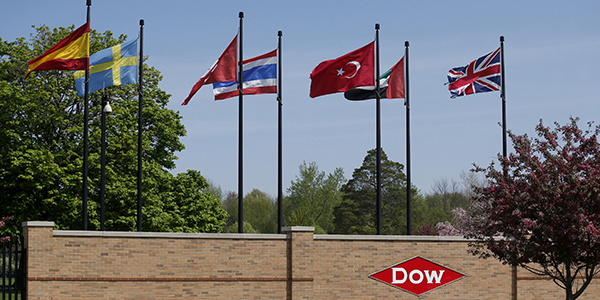 |
Turkey’s Future of Energy Calls for Innovation and Efficiency
Luciano Poli
“Turkey’s firm commitment to the diversification of its energy supply clearly shows the government’s action-oriented plan towards optimizing the country’s resources. The goals of increasing and diversifying domestic hydrocarbon resources, outlined as the indigenization pillar, will by default ensure Turkey’s ability to meet the energy demand.”
“Dow Chemical continues to reduce its environmental footprint by delivering ever-increasing value to customers and society through our products and solutions, as well as developing a blueprint for a sustainable planet and society. Dow has embarked on the third stage of its sustainability journey with its ambitious 2025 Sustainability Goals.”
|
|
|
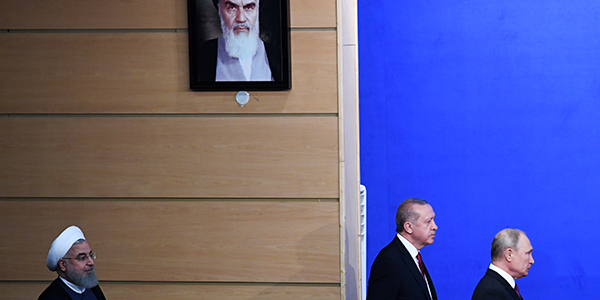 |
Turkey & Iran: Energy, Economy & Politics in the Face of Sanctions
Ellen Wald
“Turkey and Iran have a history of cooperation when it comes to trade. This is especially true in the energy sector. Even though the two countries did not always have positive political and diplomatic relations, trade, and in particular the energy trade, always superseded political, religious, and cultural differences. This is not to say that the energy relationship between Turkey and Iran has always been smooth. The two countries have frequently disagreed on issues related to their oil and gas contracts over the years.”
“The primary hurdle Turkey faces in continuing to import Iranian oil and gas after November 2018 lies in the financial transactions to pay for the oil and gas. Most of the global oil trade is conducted in dollars. However, any entity that attempts to conduct financial transactions with Iran in dollars, especially with regards to the oil industry, will be sanctioned by the US government.”
|
|
|
 |
|
TPQ will be present at the Petroleum Istanbul 2019 fair, which will take place between 28 and 30 March 2019 at the TÜYAP Fair and Exhibition Center. The fair represents a communication platform for foreign and domestic investors, as well as government officials. The theme of this year will be “Digital Revolution in the Energy Sector.”
|
|
|
Interested in contributing an op-ed to TPQ's blog?
For guidelines click here. |
|
|
The Premium Corporate Sponsor of this Issue
 |
|
|
Thanks to Our Media Partner |
 |
|
|
 |
Phone: +90 212 621 4442 - +90 212 621 9258 Fax: +90 212 531 8718 info@turkishpolicy.com
Click to unsubscribe |
|
|


























